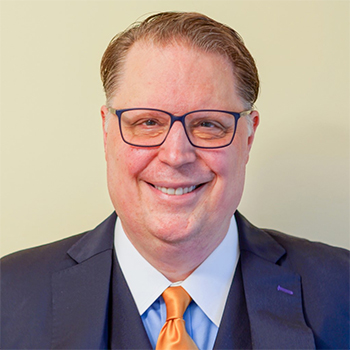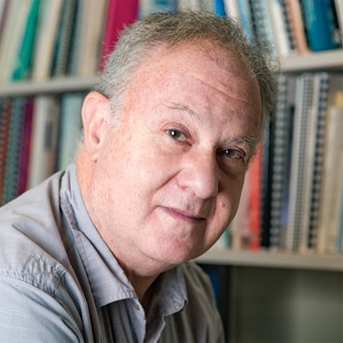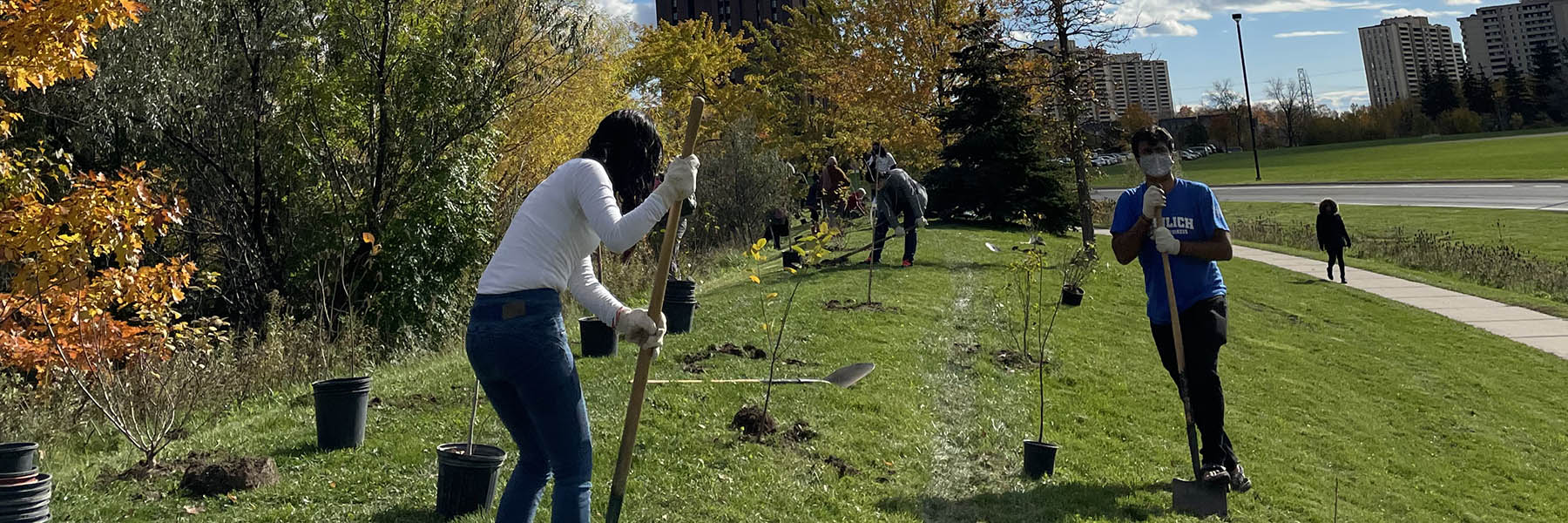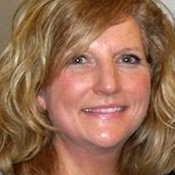York University Professor Richard Leblanc of the School of Administrative Studies, was interviewed about the final court decision that gave Edward Rogers control of the telecommunications company
Richard Leblanc

Internal YFile sub-tag

York University Professor Richard Leblanc of the School of Administrative Studies, was interviewed about the final court decision that gave Edward Rogers control of the telecommunications company

This year marks the second Remembrance Day since the start of the COVID-19 pandemic. The main York University ceremony will take place at the flagpole on the Keele Campus and will be live streamed on YouTube.
Due to COVID-19 safety requirements and the ongoing public health concerns, University community members are asked not to make a special trip to campus to attend the in-person ceremony. Faculty, staff and students living in residence are welcome to attend, but social distancing and public health measures will be in place. For community members and students opting to view the ceremony, the York University event livestream can be easily accessed on the Remembrance Day website at https://www.yorku.ca/about/remembrance-day-ceremony/. The ceremony will begin at 10:30 a.m. and will continue to approximately 11:10 a.m.
Wearing a poppy is a Canadian tradition for Remembrance Day. Donation boxes for poppies are available on the Keele campus at all libraries, the bookstore, the student engagement kiosk in Vari Hall, and at the IT Service Desk in the Steacie building. In addition, Legion 527 is accepting donations to their poppy campaign via Interac at legion527deposit@gmail.com (add “Poppy” to the comment field on the Interac transfer) or by cheque to:
RCL Branch 527 Poppy Fund
948 Sheppard Ave. W.
Toronto, Ontario
M3H 2T6
The 11th hour of the 11th day of the 11th month marks the signing of the armistice – on Nov. 11, 1918 – that ended the First World War. At 11 a.m. that day, the guns on the Western Front fell silent after more than four years of continuous warfare. Remembrance Day honours the men and women who were killed during the two world wars and other conflicts. Previously known as Armistice Day, it was renamed Remembrance Day after the Second World War.

The study aims to document the re-emergence in academic journals of the concept of social murder – a term first used by philosopher Friedrich Engels in 1845 to describe how living and working conditions experienced by English workers caused premature death. Engels argued that those responsible for these conditions (ruling authorities, the bourgeoisie) were committing social murder.

The paper, “The reemergence of Engels’ concept of social murder in response to growing social and health inequalities,” was authored by PhD candidates Stella Medvedyuk and Piara Govender, and Professor Dennis Raphael, and is published in the journal Social Science & Medicine.
After the concept was introduced, it became largely dormant in academic journals through the 1900s. Since 2000, the authors report, there has been a revival of the social murder concept with its growth particularly evident in the U.K. over the past decade as a result of the Grenfell Tower fire and the effects of austerity imposed by successive Conservative governments.
The scoping review consisted of identifying two primary concepts of social murder: social murder as resulting from capitalist exploitation; and social murder as resulting from bad public policy across the domains of working conditions, living conditions, poverty, housing, race, health inequalities, crime and violence, neoliberalism, gender, food, social assistance, deregulation and austerity. The authors considered reasons for the re-emergence of Engels’ social murder concept and the role it can play in resisting the forces responsible for the living and working conditions that kill.
The authors suggest that using “anger arousal” by way of the term social murder could be a means to instigate public resistance to public policy directions set by governing authorities that threaten health and well-being.
The paper states, “Efforts to promote public policy that equitably distributes resources amongst the population is becoming increasingly difficult due to increasing acceptance of neoliberal inspired approaches to governance. The COVID-19 pandemic has not only made the health effects of these inequalities in resource distribution explicit but has also exacerbated them.”
Another means of public mobilization would be to question the legitimacy and competence of governing authorities. For example, identifying those who benefit from social murder or contribute to the creation of social murder could spark public resistance to health-threatening policies.
“Perhaps the greatest benefit from the reemergence of the social murder concept is to make explicit that the source of much of the excessive morbidity and premature death present in our societies is to be found in the capitalist economic system,” the paper states.
Evoking Engels’ concept of social murder, and highlighting those who profit from these harmful structures, is a viable option for mounting public resistance to the economic system that is causing harm, says Raphael.
The paper is freely available until Dec. 4 at this link; after that date, contact the authors for a copy.

Join Associate Professor Jonathon Penney (Osgoode Hall Law School, York University) on Nov. 18 at 12:30 p.m. as he speaks with Professor Ari Ezra Waldman (Northeastern University) about his latest book, Industry Unbound: The Inside Story of Privacy, Data, and Corporate Power. Based on countless interviews with tech employees, Waldman’s book provides an unprecedented account of how tech companies undermine privacy from the inside.
Sunglasses that spy, in-home assistants that listen to everything, websites that track our every move online. These aren’t accidents. The system is working just as it’s designed to work. In Industry Unbound: The Inside Story of Privacy, Data, and Corporate Power (Cambridge University Press, 2021), Waldman exposes exactly how the tech industry conducts its ongoing crusade to undermine our privacy, undermine privacy law and subjugate us all in the process.
Based on nearly four years of research (interviews, observations, embedded fieldwork and reviews of confidential documents), Industry Unbound shows that tech companies do not just lobby against privacy law, they also manipulate how we, their employees and policymakers, think about privacy, how their engineers design new technologies, and how their privacy professionals – regardless of their good intentions – are manipulated and co-opted into serving industry’s surveillance goals.
While many claim that privacy law is getting stronger, Industry Unbound shows otherwise, and argues recent changes in privacy laws are exactly the kinds of changes that corporations want, with even those who consider themselves privacy advocates often unknowingly complicit in data extraction.
Waldman (he/him) is a professor of law and computer science and faculty director of the Center for Law, Information, and Creativity at Northeastern University. He researches the ways in which law and technology reify traditional structures of power, with particular focus on privacy, law and society, civil rights and the LGBTQ+ community. He has written two books and published nearly 30 scholarly articles in leading law reviews and peer-reviewed journals, including the Michigan Law Review, the California Law Review, the Cornell Law Review, and Law & Social Inquiry, among others.
For more information, visit the event page; to register for the event, RSVP here.
Inquest into death of Samuel Brown at Ontario-run school for the blind postponed
Osgoode Hall Law School Professor David Lepofsky was quoted in CBC News Nov. 4. Read full story.
Climate change: Michigan’s Great Lakes warming at a feverish pace
York University Professor Sapna Sharma was quoted in Deadline Detroit Nov. 5. Read full story.
Trudeau calls on a big step to cap carbon emissions at COP26
York University PhD student Evangeline Kroon was quoted on TheWeatherNetwork.com Nov. 4. Read full story.
87-year-old SL grandmother earns Master’s Degree in Canada
York University alumna Varathaledchumy Shanmuganathan was profiled in Daily News Nov. 5. Read full story.
Newly-graduated Toronto grandma has words of advice for young people in school
York University alumna Varathaledchumy Shanmuganathan was profiled in BlogTO Nov. 4. Read full story.
The opioid crisis in Canadian university students
A story written by York University student Sarah Garofalo was published in Excalibur Nov. 4. Read full story.
MFDA makes financial pledge to support vulnerable investors
York University’s Osgoode Hall Law School was mentioned in Wealth Professional Nov. 4. Read full story.
Accelerate Business Recovery Hub expands across York Region
York University was mentioned in the Toronto Star Nov. 4. Read full story.
Shiv Nadar University, Delhi-NCR, welcomes Dr. Ananya Mukherjee as its next vice-chancellor
York University was mentioned on IndiaEducationDiary.in Nov. 5. Read full story.
New chief financial officer in Lakeshore
York University was mentioned on windsorite.ca Nov. 4. Read full story.

“Fostering the Future of Artificial Intelligence: Report from the York University Task Force on AI and Society” will run from 12:30 to 2 p.m. and will feature a keynote talk from Manuela M. Veloso, head of J.P. Morgan Chase artificial intelligence (AI) research and Herbert A. Simon University Professor in the School of Computer Science at Carnegie Mellon University.
The keynote talk will be followed by a panel discussion and Q-and-A moderated by the York University AI and Society Task Force co-chairs: Pina D’Agostino, associate professor at Osgoode Hall Law School, founder and director of IP Osgoode’s Intellectual Property Law and Technology Program; and James Elder, professor and York Research Chair in Psychology, Faculty of Health, and Department of Electrical Engineering & Computer Science, Lassonde School of Engineering.
Panellists include:
The event will also feature remarks from York University President and Vice-Chancellor Rhonda L. Lenton, Vice-President Research and Innovation Amir Asif and City of Markham Mayor Frank Scarpitti.
AI and society is a key area of opportunity for York; this report will influence the trajectory of AI research and scholarship at York going forward. York’s research in this area will contribute to core theory and technological applications, and aims to provide a broader human perspective, including the ethical implications of AI on humanity and society. The report also provides insights on York’s plan to expand its research and training capacity relating to AI and society. The goal is to explore the whole spectrum of possibilities for research, development and innovation in artificial intelligence, data governance and associated disruptive technologies as well as the impact of such technologies on society.
The report will be made available on the AI@York website.
To register for the event, visit this link.

This special issue, which is published on select Fridays during the academic year, offers compelling and accessible feature-length stories. The articles and features contained in this publication illustrate the work underway by students, faculty and staff across all Faculties and divisions at York University to achieve the 17 United Nations (UN) Sustainable Development Goals (SDGs) – a key pillar of Building a Better Future: York University Academic Plan 2020-2025.
The editors of “Sustainable YU” and I want to hear from you. Do you have a story you can share with us that showcases an initiative or project happening at York University that supports our efforts to achieve the UN SDGs?
We welcome stories from students, faculty, staff and other groups in the York University community. You can share your stories here and include a narrative, photos and/or videos. We welcome all contributions, no matter how big or small – everything has an impact.
We look forward to hearing from you. Please let us know what you think about “Sustainable YU” by contacting me at sustainability@yorku.ca. “Sustainable YU” is produced out of the Office of the Sustainability in partnership with Communications & Public Affairs.
Nicole Arsenault
Program Director, Sustainability
Answering the call for action on the UN Sustainable Development Goals
Planting the seeds for a better tomorrow
‘UNHack’ to build Sustainable Development Goals into experiential learning
Fair Trade Campus Week 2021 draws attention to the power of making trade fair for all
Sustaining our future through the power of trees
Bike Share offers a sustainable way to travel on York’s campuses


On Wednesday, Oct. 27, on the lower part of the Glendon Campus, the first tree-planting event took place; the second event was held on Wednesday, Nov. 3, on the grounds that surround the Stong Pond.
The trees were purchased through a tree-planting grant received by Regenesis@York from the City of Toronto. The grant was provided to purchase native trees to advance the city’s strategic priorities to invest in people and neighbourhoods, tackle climate change and build resilience.
Participants worked together, creating a greener campus while helping to restore ecosystems to aid in the mitigation of climate change. As trees grow, they help mitigate the effects of climate change by removing carbon dioxide from the air, storing that carbon within the trees and soil, and releasing oxygen into the atmosphere.
The tree-planting event provided an opportunity for community members to enjoy the outdoors, connect with nature, and benefit both mentally and physically, all while advancing York’s efforts to advance the United Nations Sustainable Development Goals (SDGs), specifically Climate Action (SDG 13) and Life on Land (SDG 15).
The event was oversubscribed, with an overwhelming number of registrants. Participant spaces were limited due to the current COVID-19 health and safety restrictions and protocols in place. More events of this kind will be added in the future by the Office of Sustainability so that community members can enjoy the beauty of the University’s Keele and Glendon campuses. Each event advances the University’s progress towards meeting its goal of carbon neutrality on or before 2049.

Focused on the United Nations (UN) Sustainable Development Goals (SDGs), UNHack offers an interesting and empowering experiential learning activity. This year, UNHack is organized by the Bergeron Entrepreneurs in Science and Technology (BEST) in conjunction with the York University Sustainability Office and its SDG Student Hub initiative. Joining UNHack as new partners are leaders from the School of Nursing’s Nursing Student Tutoring, Ambassadorship and Mentorship Programs.
UNHack organizers are calling on faculty across York University to direct their students to this powerful virtual experiential education event. UNHack is different from most hackathons in two ways: the “UN” comes from the United Nations, and the “hack” from hackathon, which focuses attention on local problems that are linked to the the UN’s 17 SDGs. Addressing global problems at the local level helps students recognize that they can have an impact and make a difference to critical problems that the world needs to address. UNHack is not a traditional hackathon focused on coding; this event promotes a full range of technical and creative solutions aligned around identifying the critical problem and then developing creative solutions to that problem (not the ability to develop code or software). Final prototypes of solutions are informed by the diverse minds and lenses applied to the issue, resulting in creative outputs that could encompass drawing, creating a model or other visuals, rather than technology.
Challenges in UNHack can either be developed by students or selected from those offered by York University or industry partners. In previous years, participants in UNHack have developed a system to facilitate reusable food containers, a campus-based rideshare platform, apps to help improve mental health and innovative ways to reduce paper use in posters on campus. Many of these solutions are currently in the early stages of being deployed at York University.
To learn more, visit the UNHack web page or contact Maedeh Sedaghat, BEST program officer, by email at maedeh.sedaghat@lassonde.yorku.ca .


“We are thrilled to announce the overwhelming response from faculty who are infusing the SDGs into their classrooms/courses, as well as others who want to learn more about how they might also,” said van Daalen-Smith, associate professor, School of Nursing in the Faculty of Health, and associate professor, School of Gender, Sexuality and Women’s Studies/Children, Childhood & Youth Studies Program in the Faculty of Liberal Arts & Professional Studies.
“From dance to kinesiology, psychology, Earth science, fine art, gender studies – and the marvellous list goes on – York faculty are seeing the SDGs’ relevance to the real-world issues they want their students to consider through a myriad of rich lenses,” said van Daalen-Smith.
In response, van Daalen-Smith has established a community of practice, which will hold its first meeting on Friday, Nov. 26 from 9:30 to 11 a.m. over Zoom. Co-hosted by the Teaching Commons and the Provostial Fellows program, the meeting will provide an opportunity for those attending to see examples of how faculty across York’s campuses are embedding the SDGs into their classrooms. It will also serve to initiate discussions about how an SDG-focused community of practice might look at York University. The discussions will be supported by Michael Johnny, manager of knowledge mobilization with Innovation York.
Faculty interested in attending the meeting should register here. Once registered, a Zoom link will be provided.
To learn more, contact van Daalen-Smith by email at cvandaal@yorku.ca.